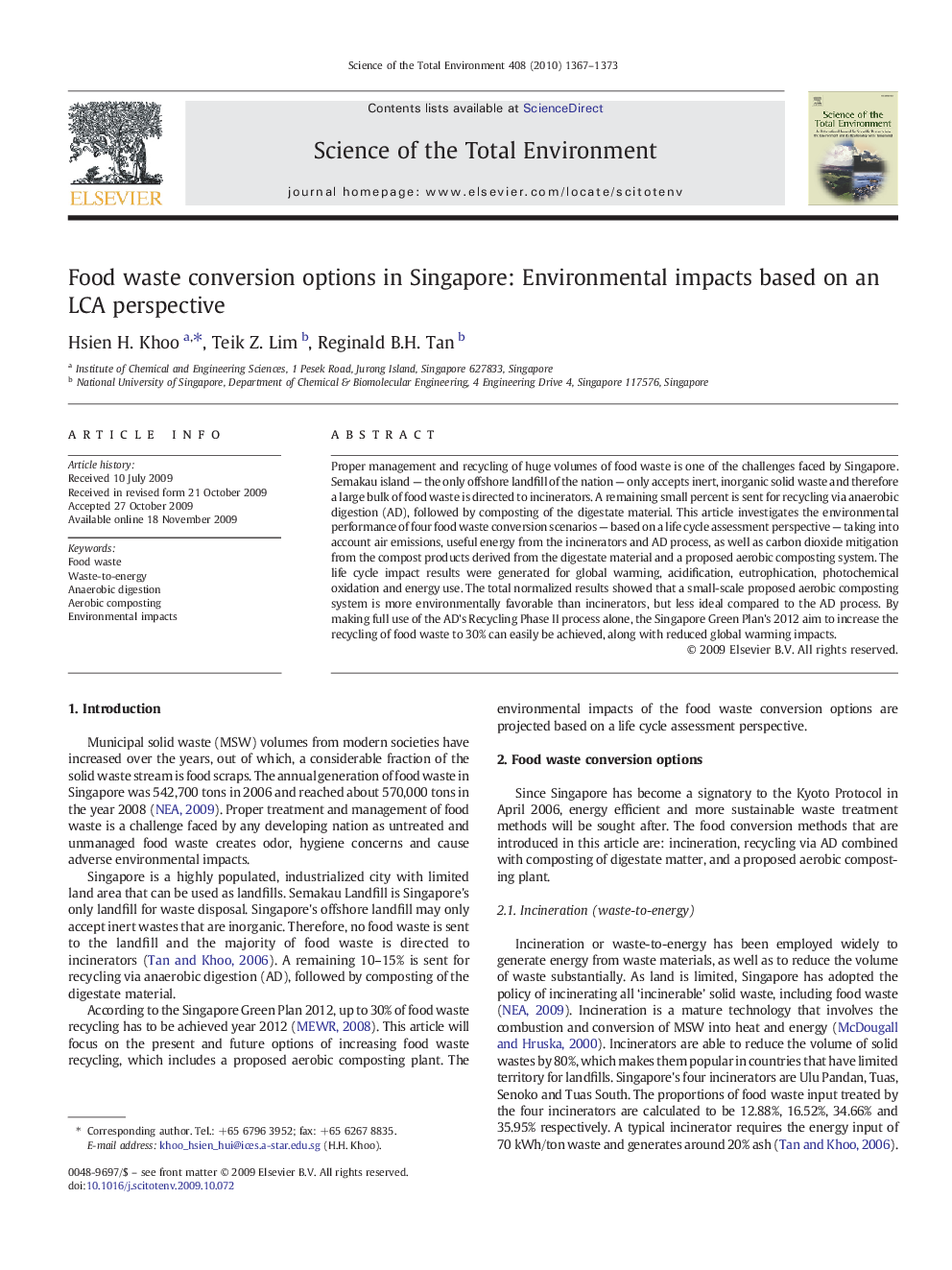| Article ID | Journal | Published Year | Pages | File Type |
|---|---|---|---|---|
| 4430582 | Science of The Total Environment | 2010 | 7 Pages |
Proper management and recycling of huge volumes of food waste is one of the challenges faced by Singapore. Semakau island — the only offshore landfill of the nation — only accepts inert, inorganic solid waste and therefore a large bulk of food waste is directed to incinerators. A remaining small percent is sent for recycling via anaerobic digestion (AD), followed by composting of the digestate material. This article investigates the environmental performance of four food waste conversion scenarios — based on a life cycle assessment perspective — taking into account air emissions, useful energy from the incinerators and AD process, as well as carbon dioxide mitigation from the compost products derived from the digestate material and a proposed aerobic composting system. The life cycle impact results were generated for global warming, acidification, eutrophication, photochemical oxidation and energy use. The total normalized results showed that a small-scale proposed aerobic composting system is more environmentally favorable than incinerators, but less ideal compared to the AD process. By making full use of the AD's Recycling Phase II process alone, the Singapore Green Plan's 2012 aim to increase the recycling of food waste to 30% can easily be achieved, along with reduced global warming impacts.
